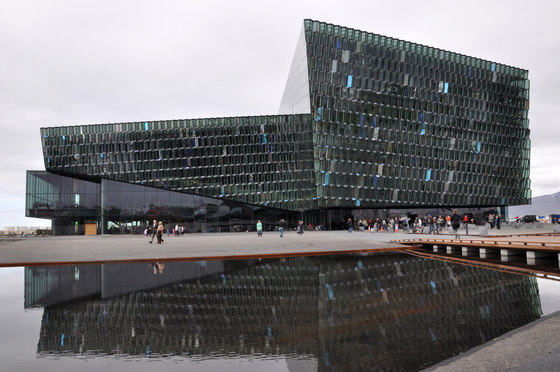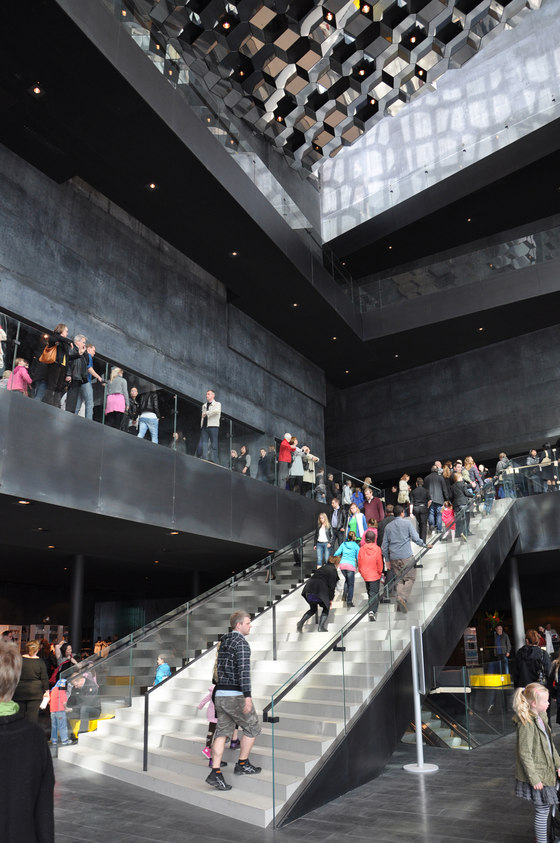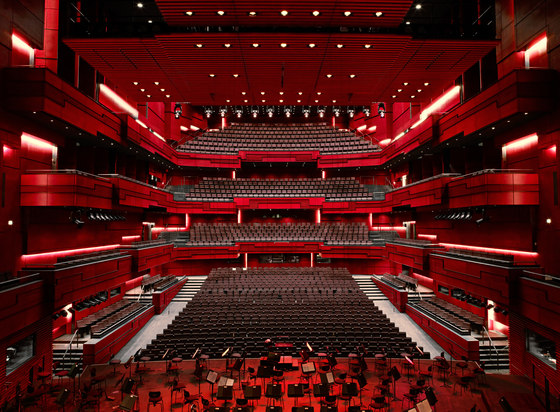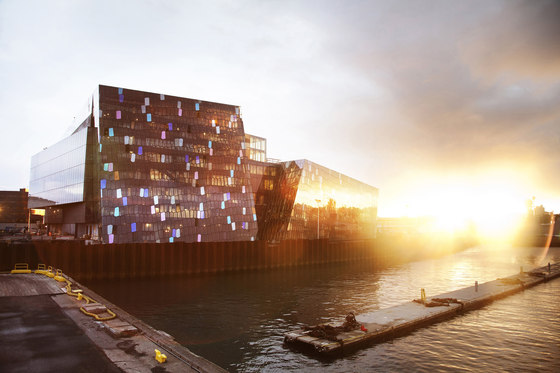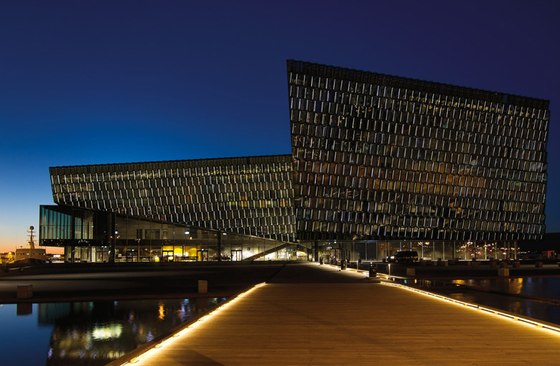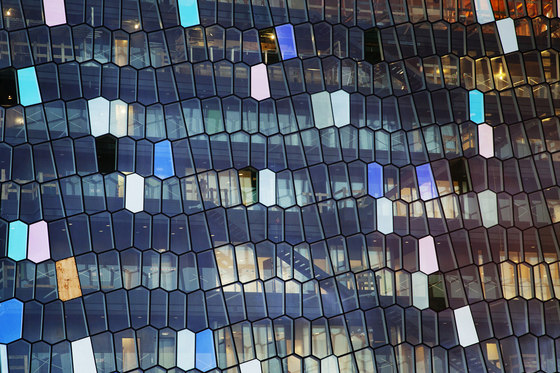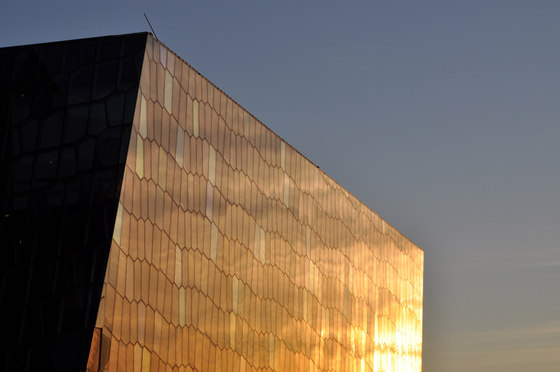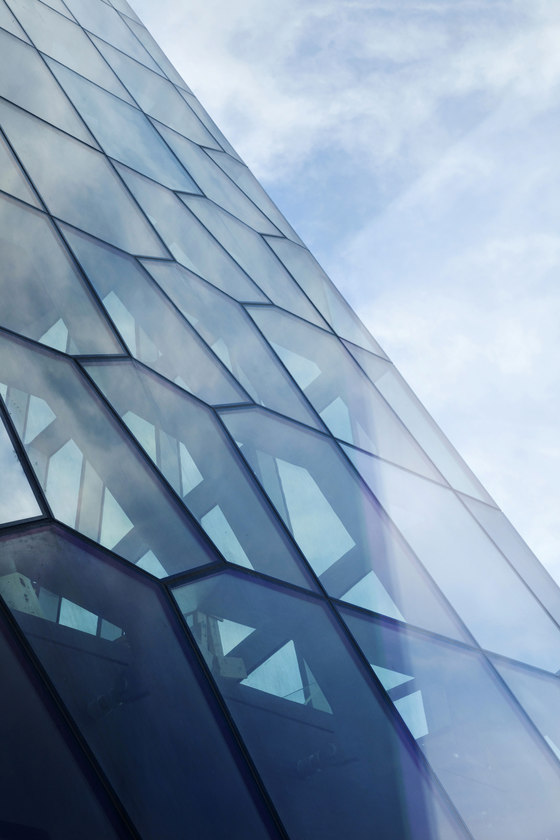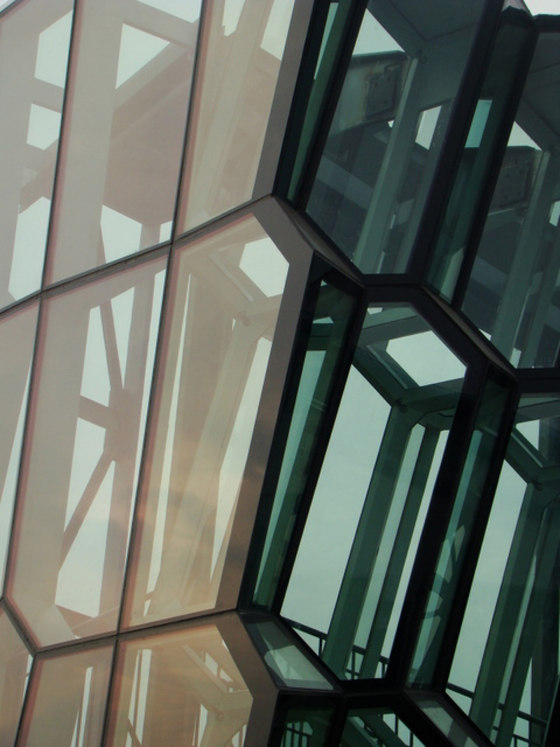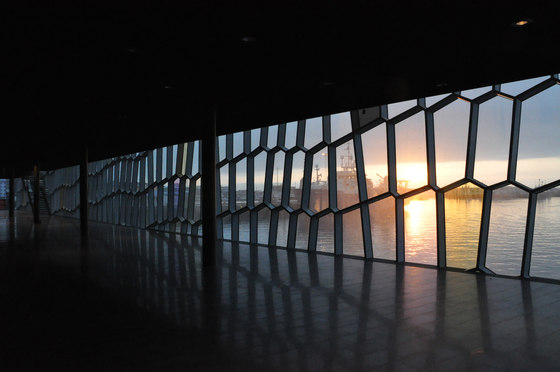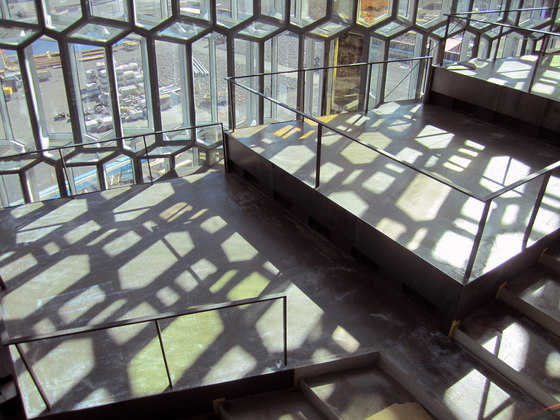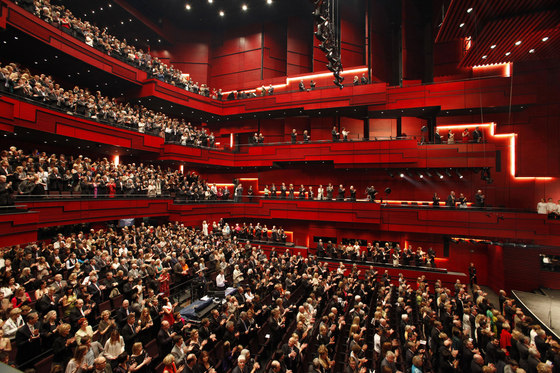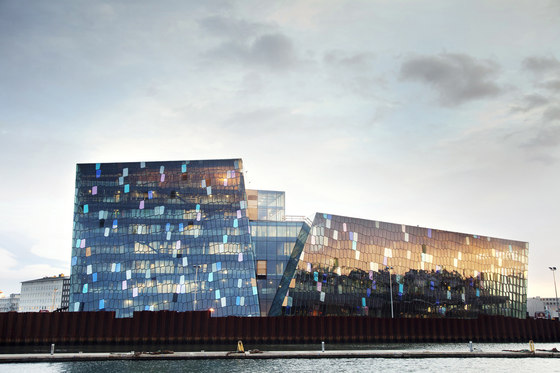Situated on the boundary between land and sea, the centre stands out like a large, radiant sculpture reflecting both sky and harbour space as well as the vibrant life of the city. The spectacular facades have been designed in close collaboration between Henning Larsen Architects, the Danish-Icelandic artist Olafur Eliasson and the engineering companies Rambøll and ArtEngineering GmbH from Germany.
The Concert and Congress Centre of 29,000 m2 is situated in a solitary spot with a clear view of the enormous sea and the mountains surrounding Reykjavik. The Centre features an arrival- and foyer area in the front of the building, four halls in the middle and a backstage area with offices, administration, rehearsal hall and changing room in the back of the building. The three large halls are placed next to each other with public access on the south side and backstage access from the north. The fourth floor is a multifunctional hall with room for more intimate shows and banquets. Seen from the foyer, the halls form a mountain-like massif that similar to basalt rock on the coast forms a stark contrast to the expressive and open facade. At the core of the rock, the largest hall of the Centre, the Concert Hall, reveals its interior as a red-hot center of force.
The National Concert & Conference Centre forms part of an extensive harbour development project in Reykjavik, the East Harbour Project. As the name indicates, the overall objective of the project is to expand and revitalise Reykjavik's eastern harbour with a new downtown plaza, a shopping street, a hotel, residential buildings, educational institutions and mixed industry. The overall intention is to generate life in the area and to create a better connection between the city centre and the harbour.
Situated outside the city's building mass, the building will become a significant icon in the city - a visual attractor with a powerful and varying expression. The isolated location will mean that, to a great extent, the changing climatic and light effects will be exposed in the facades of the concert building, often in contrast to the narrow and shady streets in the rest of the city.
Henning Larsen Architects has designed the facade of the concert building in close collaboration with the local architects Batteriid and the Danish-Icelandic artist Olafur Eliasson.
The facades are, like the rest of the building, designed with inspiration from nature. In particular the form of crystallised basalt by which the geometrical pattern of the skin was influenced. Made of glass and steel in a twelve-sided space-filling geometric modular system called the 'quasibrick', the building appears a kaleidoscopic play of colours, reflected in the more than 1000 quasibricks composing the southern facade. The remaining façades and the roof are made of sectional representations of this geometric system, resulting in two-dimensional flat façades of five and sixsided structural frames. In order to develop these ideas the team worked with three-dimensional computer models, finite element modelling, various digital visualisation techniques as well as maquettes, models and mock-ups.
Transparency and light are key elements of this build; working with these the aim was to dematerialise the building as a static entity, thus making it receptive to the changes in its surroundings as well as creating shifts in its appearance when viewed from various angles in the city and from the sea. The team has worked with both artificial and natural light, partly on the basis of studies of the Icelandic seasons.
IAV
Henning Larsen Architects and Batteriid Architects
Landscape architects: Landslag efh
Artist: Olafur Eliasson
Operator and investor: Harpa / Portus Group
Engineers: ArtEngineering GmbH, Mannvit, Hnit Verkis and Rambøll
Acoustics: Artec
